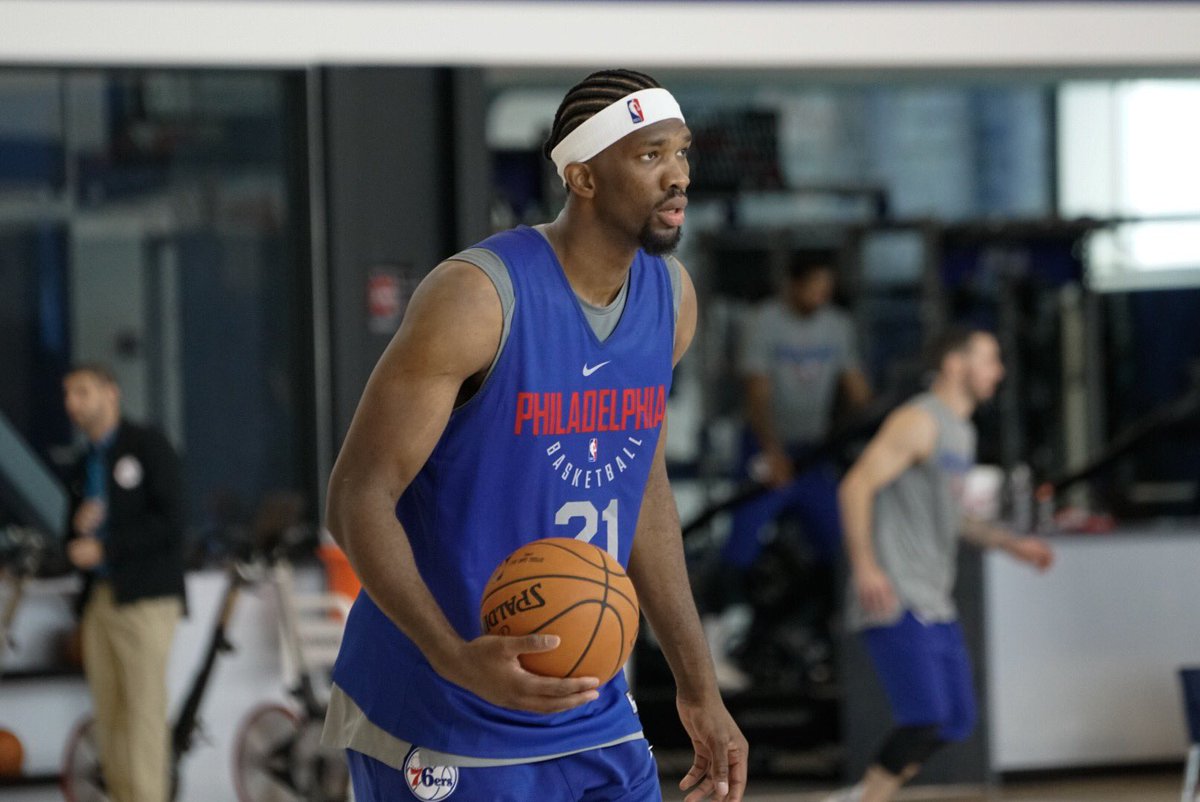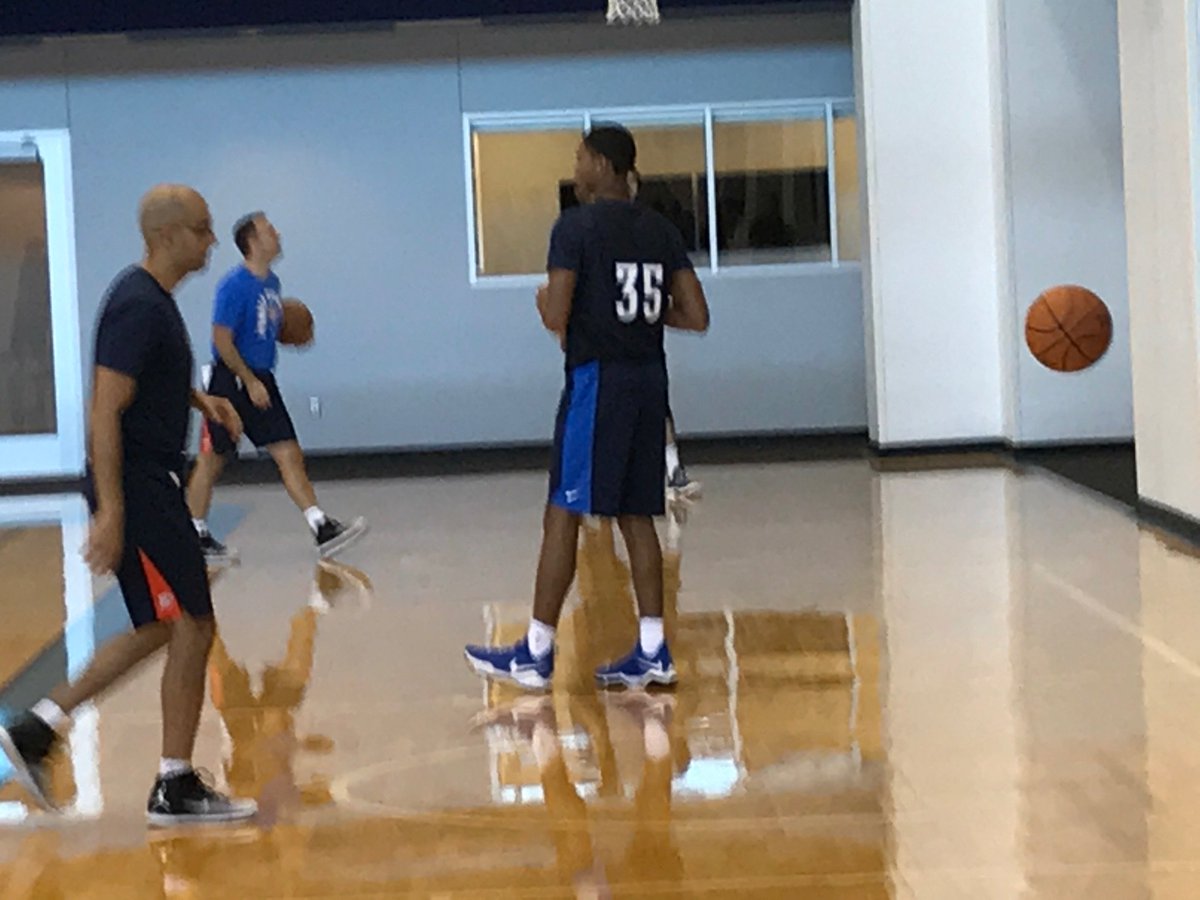It really doesn't, though. Not in the real season. You know, the one that starts in April.
Yep. Even the seeming outliers, like the 2015 Cavs or 2010 Mavs really ratcheted up their D in the postseason. GSW would not have won their first title in 14/15 without playing some tremendous D. Both Memphis and Cleveland bogged them down offensively in a major way during that run.
No, it definitely is true. A defense can only do so much - if a player is hitting ridiculous shots that 99% of the time wouldn't go in, it can't really do much. When a Curry starts making long-range 3s and gets going, there really isn't much to do. When Kyrie gets hot, it would take a LOT for any defense to stop him.
The thing about defense is that the game isnt played in such a way that if a player plays at an elite defensive level vs a bad defensive, it isn't reflected if both shots go in. There is no "well player 1 had a 50 rating on defense and player 2 a 20 on defense, so when they both guarded a player 3 who had a 100 on offense, player 1 let him only score 0.5 points, and player 2 let him score 0.8 points"
The shot is either in or isn't, and barring a block or steal that can't be as determined by the defense, compared to the offense. Now of course, when you have hundreds of points per game, and a long number of games, etc. you can start to see the difference, the focus on efficiency, etc. but by it's very nature, the defense is mostly passive and reactive. If you play by yourself on offense, you can score one point. If you play by yourself on defense, you don't have some method to directly make the non-existent opponent lose a point.
You also need to account for offenses that force switches and rotations (which is... most offenses). Every time a defense switches, it's under some significant amount of stress. The shot clock mitigates this factor, but defenses are still incredibly vulnerable.
And again, you're not getting into the way defense requires more energy. If a 100 rating offense 0 defense team played a 0 offense 100 defense, the 100 offense would win even if the 100 defense could completely prevent any shots from going into the basket, because over time, both teams will drop slightly in rating due to exhaustion over time, except the defense expends more energy on the side of the ball it tries on. So by the 4th quarter, you actually have something like a 95 rating offense vs a 90 rating defense.
The only way the defense can tie (TIE!) a game in that situation is if starts off with a higher initial rating (like 125 defense), except then you go to overtime, wearing the defense down even more. You would essentially need the defense to have such a headstart on its "rating" that the offense reaches 0 first despite the defense going down at a faster rate, and again, that just results in a tie game.
Again, these are examples and hypotheticals meant to illustrate a point. Actual basketball is more complicated. But the great offense vs great defense thing should be pretty obvious when you consider that, in the peak period for NBA defenses, the early-mid 2000s, a match-up like the Pacers vs Pistons would still result in a score within the 70s. That seems low-scoring, until you think of how big that number is outside of a basketball context.
Hope rebounding doesn't remain a mess...
Marcus Morris, iirc, is slightly injured, which is why Tatum is starting. Either way, he should be a good rebounder for his position (the basic stats don't as evidently show this because he was playing next to Andre Drummond)
Don't know if I can muster up the motivation to watch more than a handful games. The Warriors are coasting to another title anyway.
That's a damn shame, because although last year's playoffs were mostly trash, the regular season was incredible, and the off-season was legendary.
There are too many interesting experiments (CP3-Harden, Boogie-Brow), too many up-and-coming teams (Timberwolves, Bucks, Sixers, Nuggets), and too many teams that look to just be fun to watch (Clippers).
Funnily enough, it's only really Warriors games that I really tune out of due to their huge advantage. Otherwise, during the regular season, I just don't really even think about the Warriors (the Warriors make for exciting plays and boring games).
In any case, I think it's bs to say it all doesn't matter. If in 2 years Myles Turner becomes a superstar, part of how he got there will have been in this season. If in 4 years two HOF level point guards pair up due to the success of CP3-Harden, even if the Rockets couldn't beat the Warriors, then this season will have mattered. The Thibs Bulls never won a championship and made the ECF once, but they still had a major impact on NBA defenses league-wide.
And for a lot of teams, how far they manage to get in the playoffs, or play in the playoffs, or how well specific players played in the playoffs, that all matters.
That being said, I again think this is because I'm sorta able to ignore the Warriors during most of the regular season and then get annoyed at what they do to their playoff series (other playoff series can still entertain)







